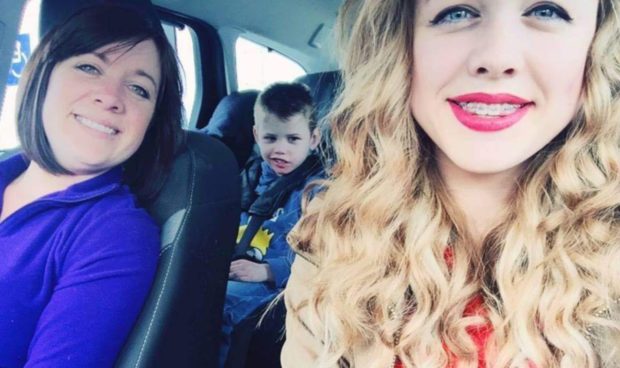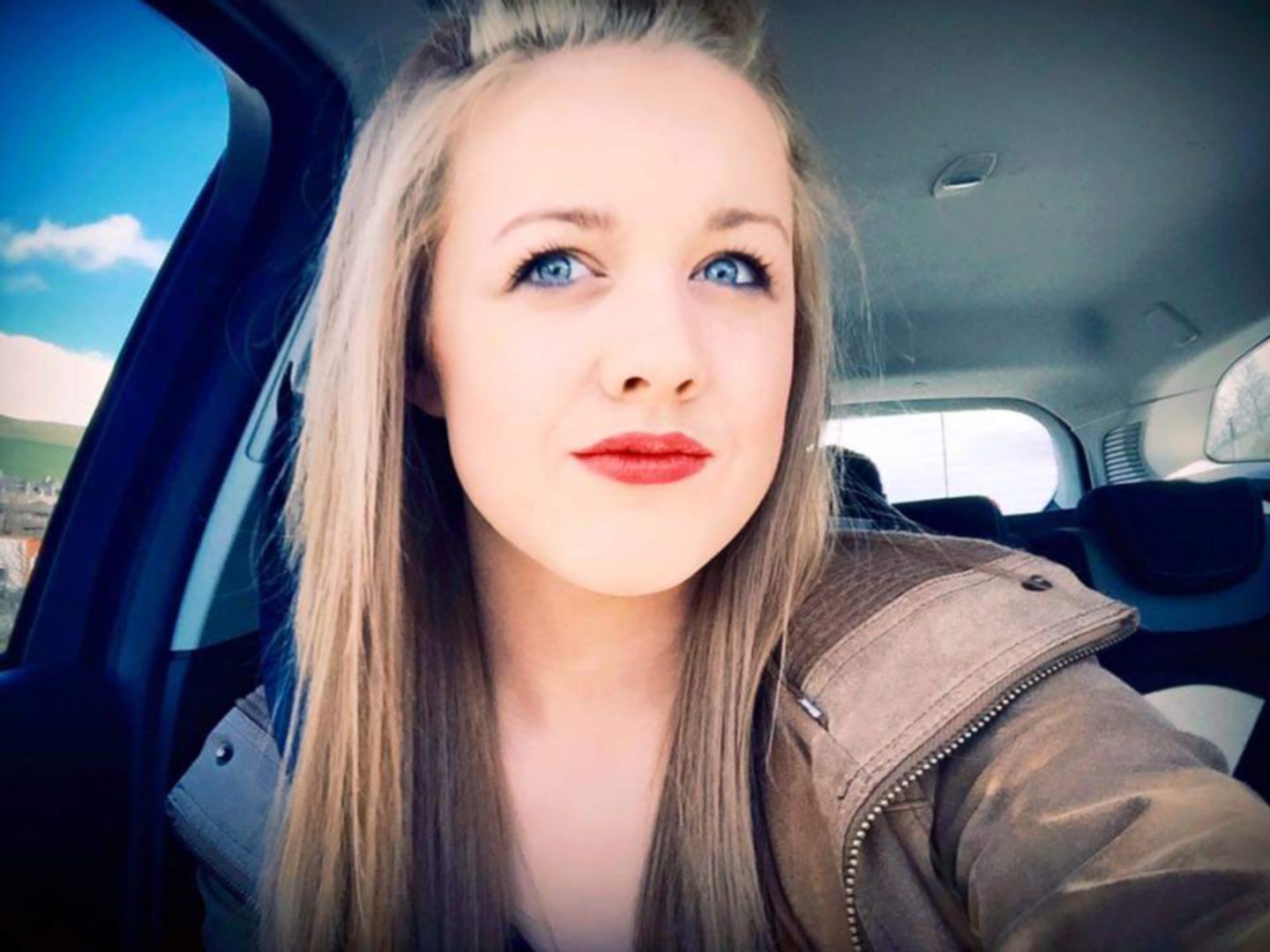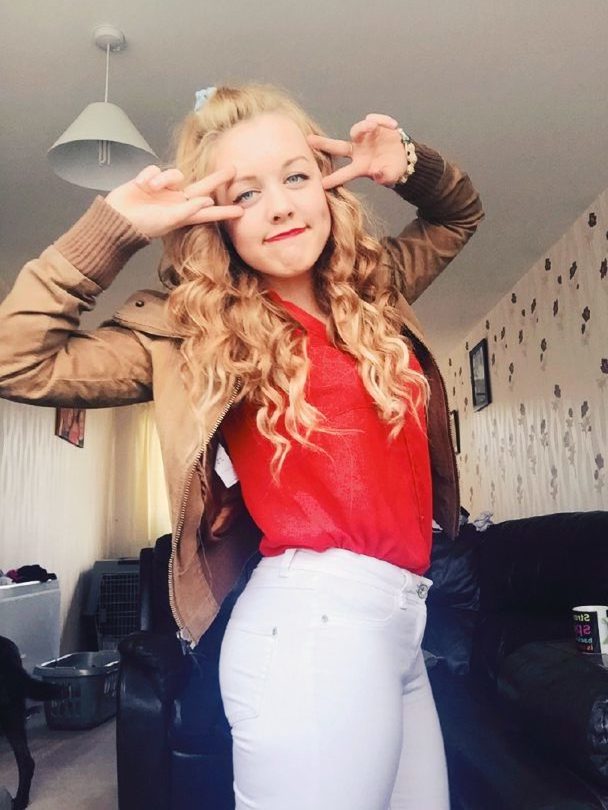
As Lisa Bond cradles her new baby boy Frankie in her arms, her thoughts turn, as always, to his big sister, Aaliyah.
She would have – should have – been 19 next month. A student, perhaps, certainly a loved and loving daughter, aunt and sister to Keira and brother Macailean. Instead, despite her family’s relentless attempts to get her the help she needed, Aaliyah took her own life on May 17, 2015. She was just 13.
Today, Lisa speaks publicly of her loss for the first time to support calls for urgent action to bolster Scotland’s mental health services and invest in care, so that no more vulnerable young people have their pleas for help ignored, so other young lives are not ruined or lost to mental illness.
Lisa believes her daughter would still be alive had she received appropriate care. She says multiple failings and a lack of communication across a number of frontline services meant Aaliyah “got lost in the system” and denied the help she needed.
“Aaliyah got lost in the system of getting referred and bounced from one person to another. She didn’t see one mental health professional for any real length of time at any point,” Lisa, 37, told The Sunday Post from her home near Galashiels. “I was so frustrated because I didn’t know where to turn for help. We tried all the services – police, social work, Child and Adolescent Mental Health Services – but nobody listened. Every time someone saw Aaliyah, they never treated her like someone who had been treated before. They never looked at her history. There was no communication, no timeline of events, no shared information.
“She saw a number of different people from different services but there was no one overlooking her case to see how things were progressing. Nothing was consistent.”
Lisa first realised her daughter had started to self-harm aged 12 in January 2014, after Aaliyah was taken to hospital with an injured wrist and Lisa noticed other scars on her arm. She said: “A psychiatrist referred her for behavioural classes. On her notes, it said she was ‘At risk of self-harm through misadventures’.”
Six months later, Aaliyah tried to take her own life and was admitted to Borders General Hospital. Lisa said: “Aaliyah’s mental health was very poor at that time. She made her first suicide attempt when she was 12 in July 2014. She was referred to the mental health services but was later discharged.”
Aaliyah was supposed to start sessions with a school psychologist in August 2014, several weeks after her first suicide attempt. Staff shortages meant she did not receive psychological support in school until April 2015.
Lisa said: “Aaliyah’s school mental health worker had gone off sick and her replacement wasn’t taking on new cases and they thought it would be too much for her as she was already getting behavioural support sessions from the charity Children in Action. I thought she was depressed and that her behaviour was caused by her mental health, so that should be what they focused on. Nobody listened.”
Before Aaliyah began to struggle with her mental health, Lisa remembers her daughter as a bright, bubbly and happy tomboy who loved gymnastics. She would lift the mood of any room she entered. Lisa recalled: “She was happy, giggly and so easy to get on with. Whatever she set her heart to, she achieved it.”
Transitioning from primary to secondary school triggered a change in Aaliyah’s behaviour. Lisa at first put it down to puberty and the pressures of becoming a teenage girl. “She pushed against all the boundaries, which at the time we thought was just a part of adolescence. She had a fiery temper and her mood changed very quickly,” said Lisa. “Whenever I tried to talk to her, she wouldn’t open up. I think she was often passed off as attention-seeking. But if someone’s harming themselves to get attention, there’s a reason. Aaliyah tried so hard to let everyone know she was struggling but got no help and tried to deal with it on her own.”
At the end of March, in 2015, Aaliyah had a breakdown in school and it was agreed she’d finally receive counselling. “She started seeing someone at the school in April but then there was little they could do for her. It came too late,” said Lisa. Aaliyah was also referred to a community health worker on several occasions but there was no emergency support in place. On the weekend of Aaliyah’s death, Lisa was terrified for her daughter but her pleas for help went unanswered.
“That last weekend, we were desperate and begging for help,” said Lisa. “Aaliyah ran away on the Friday, which she had done a couple of times, and police referred a report to a social worker. The next morning, I contacted the on-duty emergency team, who you’d call to speak to social work.
“They called back in the evening but didn’t give us any help. They said if she ran away again to let her walk back home herself. The next morning we were both sitting watching TV like everything was normal. By the afternoon, Aaliyah was lashing out and throwing things.
“Her grandparents called the on-duty team for me again. They were supposed to come out or get back in touch but they never did. When they did eventually try to phone it was too late.” On the evening of May 17, 2015, Lisa found her daughter unresponsive in her bedroom, called an ambulance and performed CPR. Aaliyah was rushed to hospital but neither paramedics nor doctors were able to revive her.
Following her daughter’s death, Lisa secured a significant case review into Aaliyah’s care which, in 2017, found numerous failings. She has seen the review but is still locked in a legal battle for its contents to be made public. “There were so many failings in Aaliyah’s case,” she said. “I believe there’s a lot to be learned from all the mistakes that were made but it seems like they are trying to brush it under the carpet.”
Five years after losing her daughter, having a new baby herself and becoming a gran within the last two months has brought immeasurable joy into Lisa’s life. But she can never forget the child she lost.
“Frankie has given me a new purpose but I still think of Aaliyah every day,” said Lisa, whose eldest daughter, Keira, gave birth to a girl six weeks ago. “To not have Aaliyah here, to not watch her grow up and live her life? There are no words. The pain it brought to our family was unbearable. Every single day, I wonder what life would be like if Aaliyah was still here. She’d be 19 next month. She might be studying at university. She would have another little brother and be an auntie now.”
Lisa does not want to see Scotland’s mental health service fail any more children. “To lose someone who didn’t have a reason to die is the worst thing you could imagine. She just didn’t believe there was any other way.
“There needs to be a huge focus on mental health, especially at a young age. Giving kids the support and tools early to help them understand it and cope gives them a better chance of surviving. We need to make sure young people get the mental support and their families don’t go through this.
“If Aaliyah had got the support she needed, she would still be here. She would’ve had a chance. But the support was never there.”
Samaritans can be contacted via their helpline 116 123 or by email jo@samaritans.org

Enjoy the convenience of having The Sunday Post delivered as a digital ePaper straight to your smartphone, tablet or computer.
Subscribe for only £5.49 a month and enjoy all the benefits of the printed paper as a digital replica.
Subscribe © SYSTEM
© SYSTEM © SYSTEM
© SYSTEM